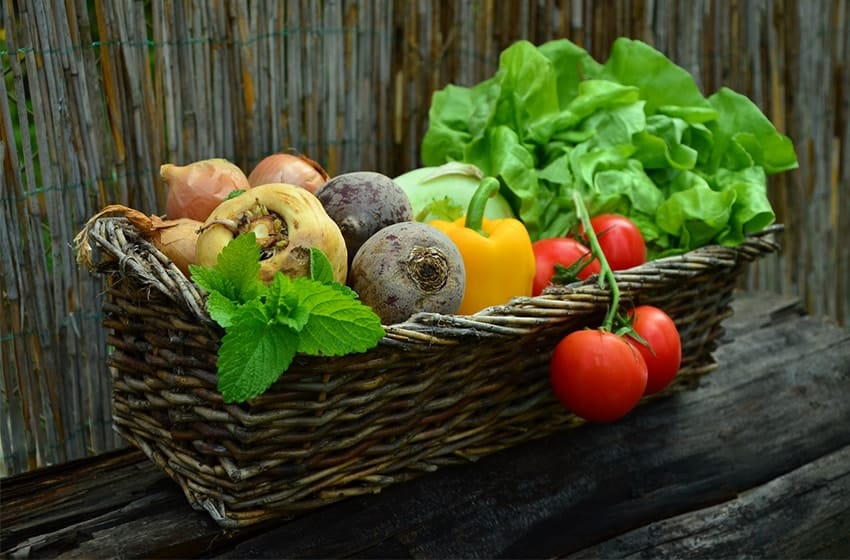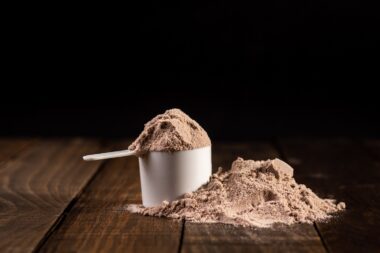Nutritional Needs During Pregnancy: What To Eat, What To Avoid
During pregnancy, a woman’s body goes through a number of changes. Her appearance, mood, sensation, posture, agility, and even food preference could change during the nine months that she has to house a little human in her womb.
During pregnancy, a woman produces a lot more estrogen and progesterone than she normally would. The estrogen aids the smooth transfer of nutrients between the mother and her child through the placenta. It also aids the healthy development of the fetus.
Progesterone is the second indispensable pregnancy hormone.
Before pregnancy, the hormone prepares the uterus for implantation. Progesterone enables the growth of the uterus during the period of pregnancy so that the fetus can live comfortably in it.
These hormones cause foreign reactions in the body and that’s minus the fact that you are housing a little being that you’ll like to carry to full term.
Healthy nutrition is important in every human and even more important in pregnant women. And no, it’s not about how much food you consume. It’s quality above the quantity of food you consume.
The fetus is solely dependent on its mother for nourishment. When you eat, the placenta which is attached to your baby’s umbilical cord transfers the required nutrients to it. This implies that an unhealthy diet can subsequently lead to an unhealthy pregnancy. You’re feeding to enhance your health as well as that of your baby.
During pregnancy, the mother experiences some physiological changes. Healthy choices during this period cannot be overemphasized.
Food items that wouldn’t have any effect on you normally might be harmful while you’re pregnant. The American College of Obstetricians and Gynecologists advice pregnant women to consume a lot more fruits, vegetables, proteins, and whole grains.
Nutritional Requirements During Pregnancy
1. Calcium
Calcium enhances the growth and strengthening of bones in growing children. The mineral helps in ensuring a healthy skeletal structure, bones, and teeth for your baby.
Expecting mothers are advised to consume about 1000 milligrams of calcium daily.
Your body takes the responsibility of caring for your little one seriously and since it cannot produce calcium itself, it takes from your body’s reserve to give your baby the required nutrients.
A deficiency of calcium in a pregnant woman can put her at risk of bone loss during the period of pregnancy and osteoporosis later in life.
2. Protein
Protein performs various functions throughout the body. It helps the cells/organs to function properly and encourages the repair of tissues and cells. It enhances the increase in blood supply, aiding blood flow to your baby.
Consuming an adequate amount of protein during your pregnancy can enhance your baby’s health.
Protein can influence birth weight and low birth weight which can arise from inadequate protein supply during pregnancy can lead to a variety of health issues such as the increased risk of infection and respiratory distress syndrome (RDS).
The amount of protein you consume should increase as you advance in your pregnancy, the third trimester being the period of highest fetal growth, requires more than the first and second trimesters.
It is recommended you consume about 70 to 100 grams of protein daily, depending on your body weight.
3. Folate / Folic Acid
Folate helps to prevent neural tube defects, which are birth defects that affect the brain and spinal cord of a baby.
This defect leads to incomplete development of the brain and spinal cord, including spina bifida (underdeveloped spinal cord) and anencephaly (underdeveloped brain and skull).
Women are advised to take folic acid as soon as they discover they are pregnant because most neural tube defects occur within the first 28 days of conception.
That’s one of the reasons why women who are trying to get pregnant are advised to start taking at least 400 mcg of folic acid daily.
The American College of Obstetrics and Gynecology recommends a daily intake of 600 to 800 mcg of folic acid for pregnant women.
4. Iron
Increased blood flow is very important during pregnancy, both for mother and child. Pregnant women are to consume about double the regular amount of iron they take daily.
Iron helps in the production of hemoglobin which is necessary for a healthy pregnancy. It also aids the transportation of oxygen to the various parts of your body and that of your baby.
Pregnant women and breastfeeding mothers are to consume between 27 to 47 mg of iron daily.
That said, it is important to be cautious of how much iron you are consuming, especially if you’re taking supplements.
Not consuming enough iron during pregnancy can lead to iron deficiency anemia. This is a condition that arises when the mother does not have enough iron to produce the required amount of hemoglobin needed by the body.
It can cause weakness and fatigue for the mother and can lead to premature birth and low birth weight.
Also Read: Foods For Anxiety: Nutritional Strategies To Ease Your Anxiety Levels
Foods to Avoid During Pregnancy
Here are some of the food items that are a huge no for pregnant women who are not trying to cause harm to themselves or their baby.
1. Alcohol
Pregnant women are advised to stay off alcohol and not exceed two units/week if they have to drink.
Consuming alcohol during pregnancy and especially during early pregnancy can have adverse effects on the embryo.
Overindulging in alcoholic drinks while pregnant puts your child at risk of being born with fetal alcohol syndrome. This condition is characterized by brain damage and growth impediments.
2. Caffeine
A study by The Committee on Toxicity of Chemicals in Food, Consumer Products, and the Environment has established a link between caffeine intake during pregnancy and a high risk of spontaneous abortion and low birth weight.
Pregnant women are advised to not take more than 200 milligrams of caffeine daily.
3. Raw / Undercooked / Dirty Food
Raw and undercooked food leaves you at risk of several infections. Pathogens like listeriosis, salmonella, campylobacter, and toxoplasmosis can cause a lot of harm to you and your baby.
These infections can cause stillbirth, miscarriage, premature birth, and a couple of physiological impediments.
According to a study by the Center for Disease Control and Prevention, pregnant women are at a greater risk of getting infected by listeria.
Also Read: Best Vegetable Recipes for Starting Losing Weight
Effects on Liver
The liver contains a high quantity of vitamin A and according to The Expert Group on Vitamins and Minerals, consuming this vitamin in large quantities comes with teratogenic risks.
Consumption of high levels of vitamin A during pregnancy puts your baby at risk of being born with birth defects.
Foods to Eat During Pregnancy

Practicing a healthy eating habit is a necessity for a healthy pregnancy and delivery. There are a variety of tasty options and healthy diets that can meet your nutritional needs during pregnancy.
1. Dairy: Food items like cheese, milk, and yogurt equip the body with nutrients like calcium, protein, phosphorus, and zinc.
2. Vegetables: Vegetables contain nutrients like vitamin C, Calcium, Iron, Folate, Potassium, and vitamin A.
3. Whole grains: Grains like oats, millet, barley, quinoa, and rice supply the body with fiber, vitamin B, iron, and magnesium.
4. Sweet Potatoes: Sweet potatoes contain high levels of Vitamin C and A.
5. Avocados: Avocados are rich in nutrients like vitamin E, Potassium, Vitamin C, Vitamin B (including folate), and fiber.
6. Lean Meat: Pregnant women need protein and amino acids which are very important in fetal development.
7. Eggs: Eggs are rich sources of protein, choline, fat, vitamins, and minerals.
8. Dried Fruit: Dried food supplies the body with iron, potassium, and a variety of vitamins and minerals.
9. Salmon: Salmon has a high level of omega-3 fatty acids and vitamin D.
Also Read: 10 Superfoods You Should Consider Eating Every Day
Final Words
What you consume has a major role to play not just for the duration of your pregnancy but also for the duration of your child’s life. Eating healthy contributes to a healthy pregnancy, delivery, and a healthy baby.
About The Author – Dinma Osoka
Dinma is an avid reader and researcher. She can’t imagine a life without Google and is obsessed with making discoveries about the human body and the essence of life (though she hasn’t made much headway on the latter).
Image Credit: Unsplash
This article is published by our independent team of health and wellness pundits that publish original and informative content to empower readers to take charge of their health and embark on a physically, mentally, and emotionally balanced lifestyle.





































